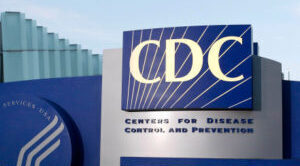on
Staff turnover at the Centers for Disease Control and Prevention continues as the United States faces several public health threats.
by Jennifer Porter Gore
By Tuesday afternoon, it was clear that the Centers for Disease Control and Prevention was having a tough week.
Already dealing with domestic outbreaks of measles and tuberculosis as well as human cases of avian flu, the agency on Tuesday lost five top-level staffers — including a Black health equity specialist who had been targeted by a right-wing, anti-diversity “watchlist.”
Then, news broke that the Department of Health and Human Services, the cabinet-level agency that oversees the CDC, ordered it to claw back $11.4 billion in emergency COVID funds it had distributed to state and local health departments nationwide.
“The COVID-19 pandemic is over, and HHS will no longer waste billions of taxpayer dollars responding to a non-existent pandemic that Americans moved on from years ago,” according to a statement from Andrew Nixon, HHS director of communications. “HHS is prioritizing funding projects that will deliver on President Trump’s mandate to address our chronic disease epidemic and Make America Healthy Again.”
It comes at a time when the agency, which has a $9.2 billion budget, confronts a range of challenges on multiple fronts — including tuberculosis, avian flu, and a West Texas measles outbreak responsible for more cases of the disease than the nation had seen all of last year.
Since early February, a round of mass firings, primarily aimed at new and temporary workers, thinned the CDC’s ranks. Because of it, critics say, the agency would struggle to respond in a larger outbreak or pandemic.
“The challenges for these individuals to do their jobs on a daily basis must be enormous,” Jason Schwartz, a Yale University health policy researcher who studies government health agencies, told the AP. “The future of CDC is under threat, by any measure. It’s understandable why individuals may decide to move on rather than see the agency diminished in its works, its resources, and its ability to do its job.”
“It would be foolhardy to predict what the CDC will look like” in a few months, let alone a couple of years, Schwartz said. But it’s understandable why senior leaders “might not want to sign up for that,” he added..
The latest round of staff turnover includes Leandris Liburd, a Black woman and public health veteran who was acting director of the CDC’s Office of Health Equity.
According to the CDC website, Liburd led “a wide range of critical functions in the agency’s work in minority health, health equity, and women’s health, and played a critical leadership role in determining the agency’s vision for health equity, ensuring a rigorous and evidence-based approach to the practice of health equity, and promoting the ethical practice of public health in communities vulnerable to health inequities.”
Liburd’s tenure began in 2020 and was part of efforts to address the disproportionate rate of COVID-19 deaths among Black, Hispanic, and Native Americans. Earlier this year, Liburd was among 89 public health professionals who appeared on a “DEI Watchlist” earlier this year.
The American Accountability Foundation, the conservative group behind the DEI Watchlist website, listed dozens of Black and Latino federal employees as “targets” because of supposed “offenses” consisting of personal statements, social media posts, or professional histories of supporting left-leaning causes. Dr. Liburd’s name, picture, and job title appeared on that page.
According to NBC News reports, documents CDC leadership sent agency departments on Tuesday said the funds had covered “Covid testing, vaccination, community health workers and initiatives to address Covid health disparities among high-risk and underserved populations, including racial and ethnic minority populations and rural communities…”
The affected organizations started getting notices of the cancelled funds on Monday.
With the departure of Liburd and four of her colleagues, the CDC will have lost roughly 30% of its upper-echelon leadership since February.
The agency also must manage the response to a tuberculosis outbreak centered in Kansas City, Kansas, that has led to the highest number of U.S. tuberculosis cases since 2013.
On Monday, the White House announced it is nominating the agency’s acting director, Susan Monarez, to become the permanent director.
Join our email list to stay connected.








